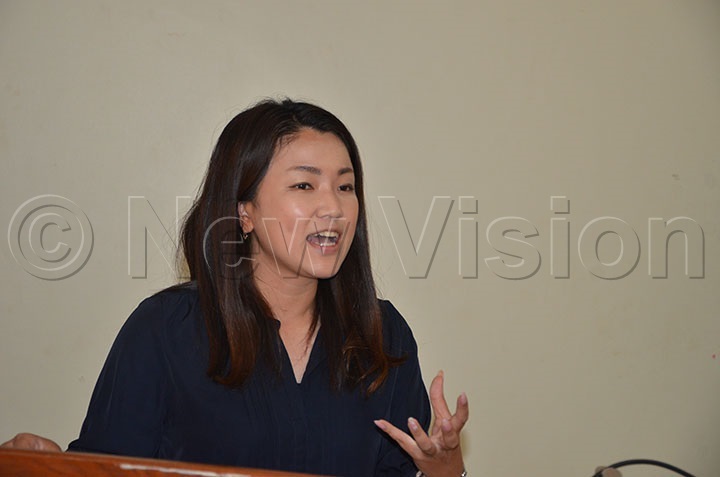Japanese govt hands over community access roads in Rwenzori sub region
Iwamura said they had repaired several access roads in the parts of Kasese, Kyenjojo, Bunyangabu and Kyenjojo which they handed over to the district officials.
INFRASTRUCTURE
The Japanese government through its ministry of foreign affairs has handed over newly repaired community access roads in the four districts of the Rwenzori region Kasese, Kabarole, Bunyangabu and Kyenjojo.
Through the Community Road Empowerment-CORE, the Japanese government and the ministry of works unveiled a new technology that will help community members to work and maintain their roads without road equipment.
Yuka Iwamura, the project manager for CORE Uganda while meeting leaders from the Rwenzori sub-region in Fort Portal said they had empowered the communities to be self-reliant by imparting skills and practical application through training.
Iwamura said they had repaired several access roads in the parts of Kasese, Kyenjojo, Bunyangabu and Kyenjojo which they handed over to the district officials.

"Our major objective is to ensure that people can easily access social amenities like schools and health centers and also help farmers' access agricultural markets to trade thus economically empowering the communities," Iwamura said.
Iwamura said they had partnered with the ministry works and transport so that the Do-nou technology can receive funding through the national budget and disseminate it in the whole country.
Eng. Emmanuel Twinamasiko the assistant commissioner in charge of community access roads in the ministry of works said the newly introduced road repairing technology will help to cut on the costs incurred by local governments.
"We are in advanced stages of signing a memorandum of understanding so that the Do-nou technology can be rolled out in the entire country," Mukiibi said.
James Ategeka the LC5 chairman for Bunyangabu said with the new technology some of the impassable roads in the district have been worked on.
"As a district, our budget is very low and we cannot afford to periodically maintain most of our roads but through the project, some roads which were impassable are now in good condition," Ategeka said.
Do-nou is a Japanese word that means wrapping in sacks and roads worked on using the technology can last for over 10 years if well maintained according to Eng. Samson Mukiibi a road engineer.
"The project started in 2019 in some parts of Kampala and Wakiso we mainly train the youths and equip them with tools for them to repair their community roads," Mukiibi said.
Mukiibi said that after filling gurney bags with gravel and leveling them smartly on the road, residents use hand rammers or compacters to compact the leveled road.
"Some of the tools required include hoes, 20 liter cans, pick axes, files or sharpeners, sledge hammers, tape measures and tri squares among others which can be locally accessed," Mukiibi said.
Mukiibi said that the Do-nou technology involves filling gurney bags with gravel and leveling them smartly on murrum roads. The technology is in applicable on roads that are inaccessible by tractors.